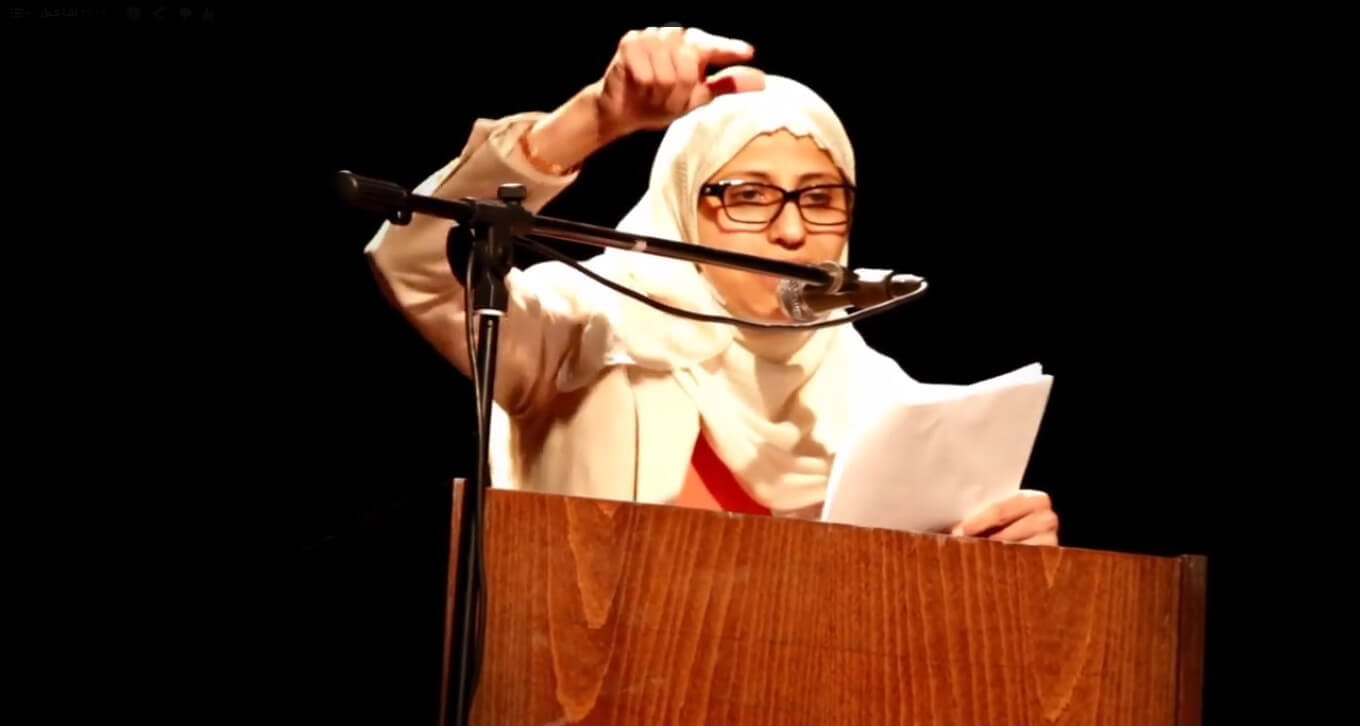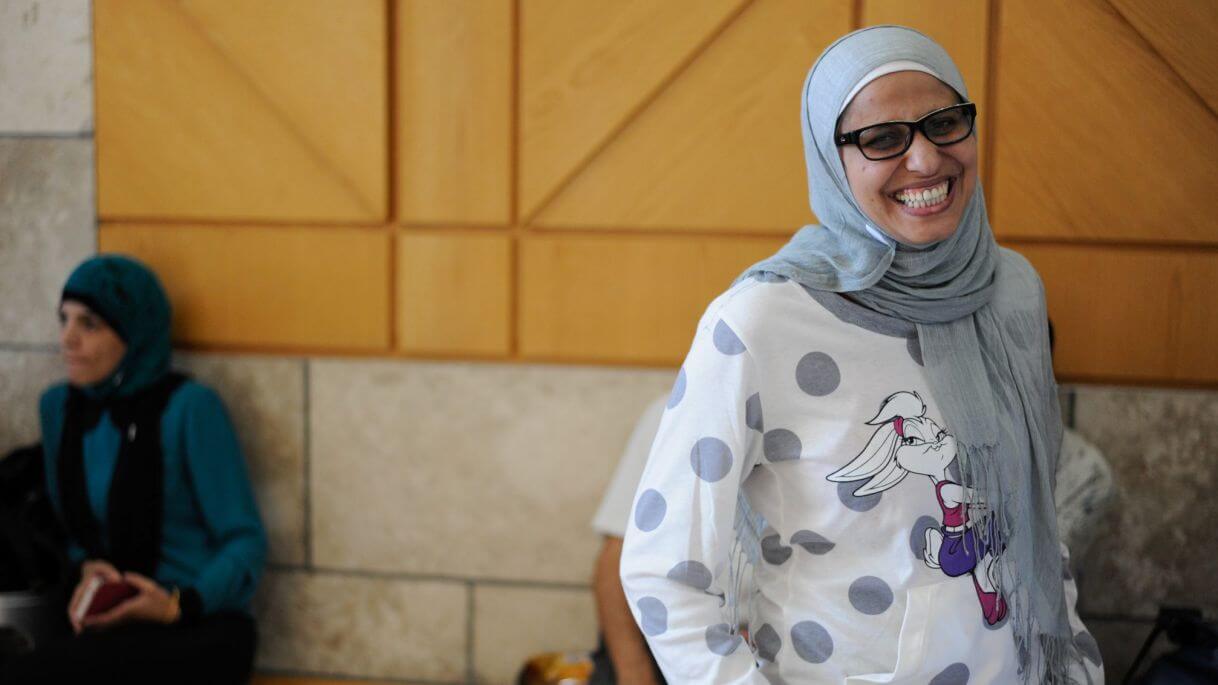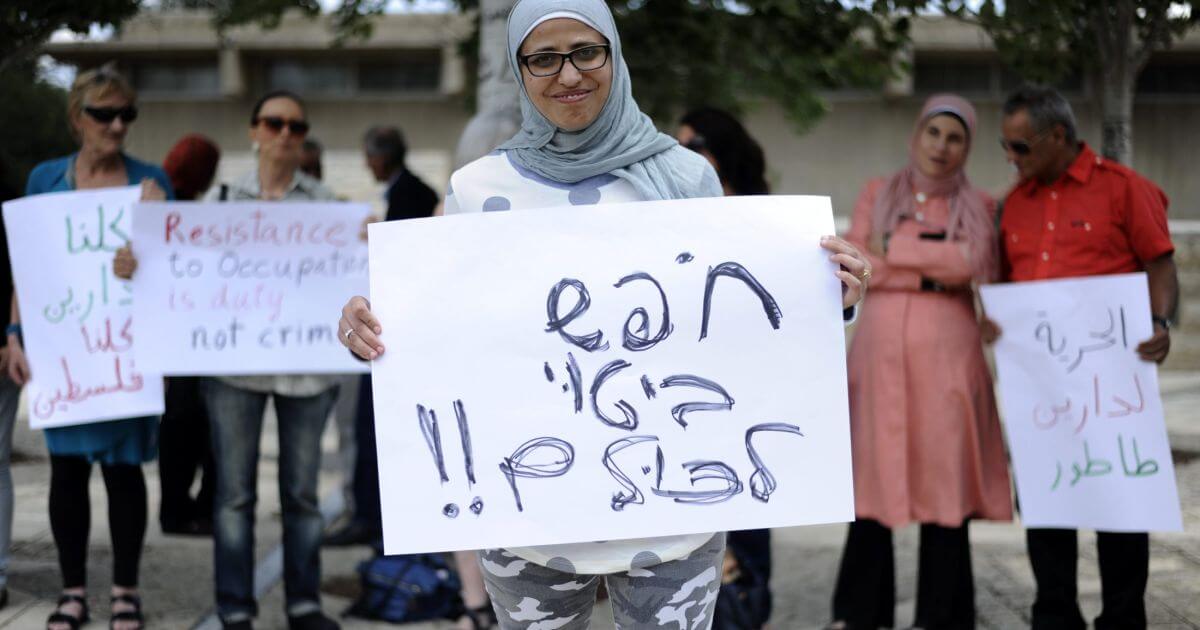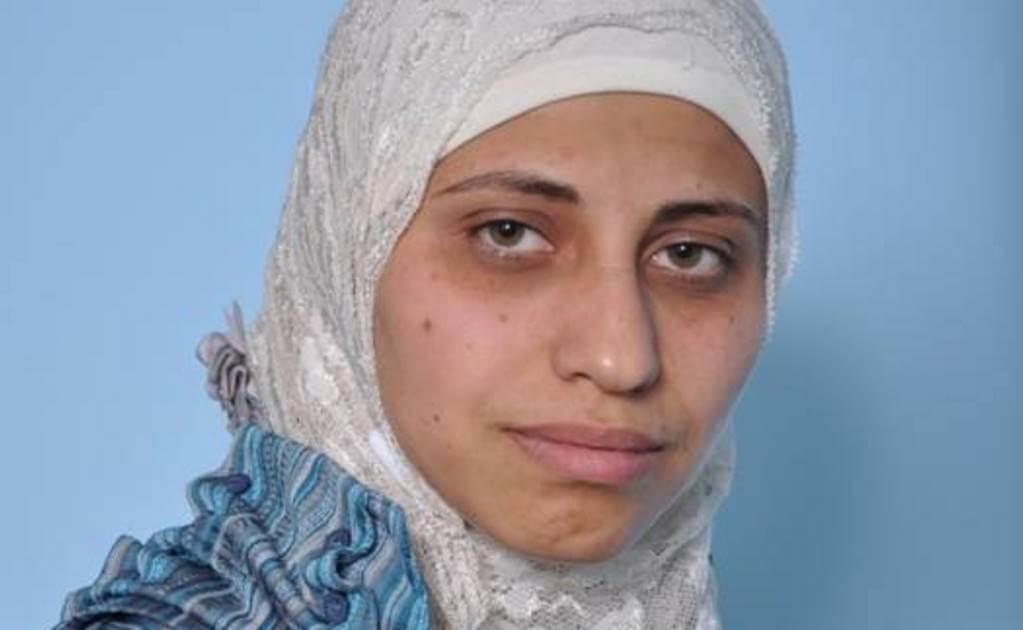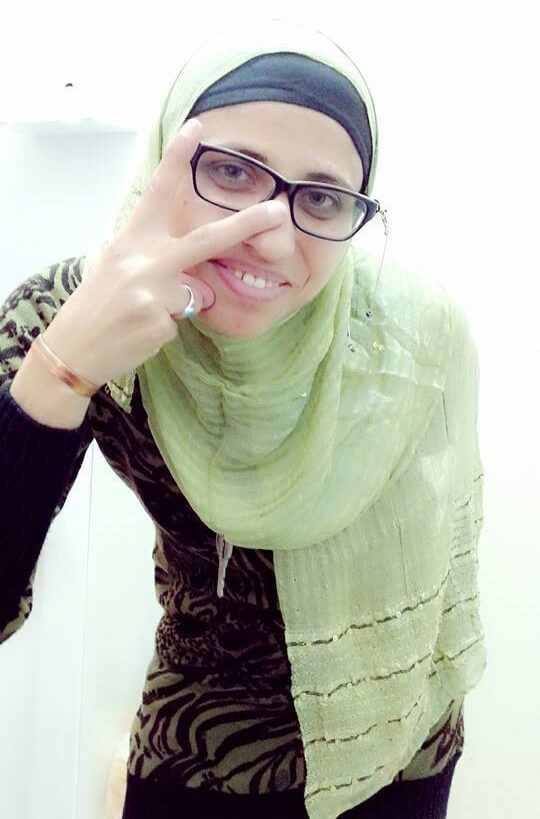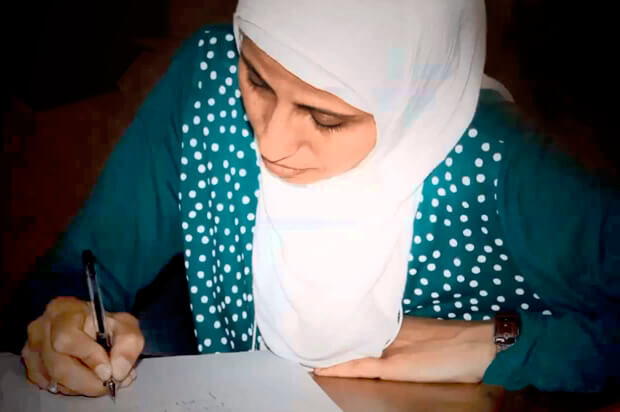Free Dareen Tatour
UPDATE: Tatour was released on September 20, 2018. She served 42 days of her sentence after it was reduced 97 days (the number of days she spent in jail following her October 2015 arrest).
UPDATE: On May 3, 2018, Dareen Tatour was found guilty of both charges against her. She was sentenced to 5 months in prison in August 2018.
Dareen Tatour is an Arab citizen of Israel arrested on October 11, 2015 and charged 22 days later with “incitement to violence” and “supporting a terrorist organization” over a poem that she posted to YouTube. The video featured Tatour reading her poem while backed by images of clashes between Palestinian protesters and Israeli security forces. The poem, “Resist, My People, Resist Them” says nothing against Israeli law, but was released during a time of widespread protest in Palestine.
Dareen is from the town of Reineh, Israel, located at the northern edge of Nazareth. Though she was born and raised in Israel, the Muslim poet self-identifies as Palestinian. Tatour published her first collection of poems, The Last Invasion in 2010. She was arrested at her family home in the early hours of October 11, 2015 while preparing a second volume addressing women’s issues, Stories of the Canary.
“Resist, my people, resist them.
Resist the colonialist’s onslaught.
Pay no mind to his agents among us
Who chain us with the peaceful illusion.
Do not fear doubtful tongues;
The truth in your heart is stronger,
As long as you resist in a land
That has lived through raids and victory.”
The prosecution has accused her of calling for terrorism, despite her being an active member of the secular, democratic Balad political party. That party’s stated mission is to “struggle to transform the state of Israel into a democracy for all its citizens, irrespective of national or ethnic identity.”
“My case, and many others, prove yet again that Israel’s democracy is a farce,” she said in an interview. “If it is democratic, it’s only democratic towards Jews.”
Her trial, which has lasted many months, has had many irregularities due to cultural confusion. One piece of evidence, a Facebook post made after the police shooting of an Arab woman, Tatour commented “I will be the next martyr.” The word shahid, Arabic for martyr, is used by Palestinians to refer to anyone affected by Israeli occupation. For Jews, the word is used to refer to suicide bombers.
Such misunderstanding of ambiguities has been commonplace in the trial.
The Hebrew translator of Tatour’s poem was a volunteer police officer whose only formal education in Arabic took place in high school. Arabic-speakers present at the trial reported the officer was “struggling with the ambiguities of the poem’s content” and took liberal interpretations of its messages.
Dareen spent three months in prison during the trial process before being moved to house arrest. However, Israeli authorities unusually demanded that Tatour be located at least 40 km (25 miles) from her family home. Her brother, who asked not to be named, left his job as a nurse to rent an apartment in Kiryat Ono, near Tel Aviv. Tatour is under constant surveillance, has no Internet access, and is only allowed outside of the apartment 6 hours a week, during which she must be accompanied by her brother.
You can watch the YouTube video here, and read a full translation of the poem here.
Dareen is currently held under house arrest in Reineh, Israel. Her lawyers Gaby Lasky and Nery Ramati say that the poet could potentially face eight years in prison. Because the trial is still underway, it is impossible to suggest when she will be released.
More than 250 prominent writers, intellectuals and artists published an open letter calling for Tatour’s release. Among those who endorsed the letter were Noam Chomsky, Naomi Klein, Dave Eggers, Claudia Rankine and 10 Pulitzer Prize winners, including renowned poet Alice Walker and journalist Kathryn Schulz.
Dareen has written a poem in prison.
A Poet Behind Bars

